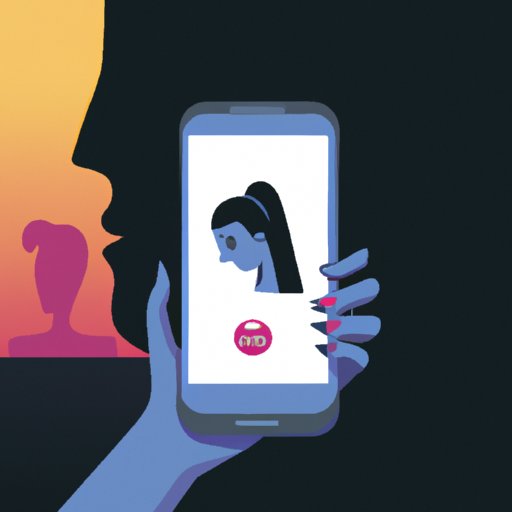Introduction
Technology has revolutionized the way we live our lives. From smartphones to laptops and tablets, it’s become almost impossible to imagine life without technology. But while technology has made many aspects of life easier and more convenient, it has also had some negative impacts on our lives as well. In this article, we’ll explore how technology has changed our lives negatively and discuss potential solutions to reduce these risks.

Increased Screen Time Leading to Health Issues
One of the most obvious ways that technology has changed our lives negatively is the amount of time we spend looking at screens. According to a 2019 study from Common Sense Media, teens spend an average of seven hours a day using digital media, and adults spend over four hours a day. This excessive screen time can lead to physical health problems such as eye strain, headaches, and neck and shoulder pain. It can also lead to sleep problems, as the blue light emitted from screens can interfere with our natural sleep cycles.
The best way to reduce the negative effects of too much screen time is to limit the amount of time spent on digital devices. The American Academy of Pediatrics recommends limiting screen time to two hours per day for children and adolescents. For adults, it’s important to set boundaries around when and where digital devices can be used. For example, you could designate certain areas of the house as “screen-free zones” or create a rule that no devices are allowed after 9 PM.
Increased Dependence on Technology
Another way that technology has changed our lives negatively is by making us overly dependent on it. Many of us rely on technology to do simple tasks like setting reminders or finding directions. We’ve become so reliant on technology that we forget how to do things without it. As Dr. David Greenfield, founder of The Center for Internet and Technology Addiction, says, “We’re becoming a generation of people who are losing their ability to think independently and problem solve without the aid of technology.”
To avoid becoming overly dependent on technology, it’s important to take regular breaks from digital devices and engage in activities that don’t involve screens. This could include reading a book, going for a walk, or playing board games with friends. Taking a break from technology can help sharpen your problem solving skills and boost your creativity.
Loss of Privacy and Security Risks
Another downside of technology is the loss of privacy and increase in security risks. With the rise of data breaches, it’s become increasingly difficult to protect our personal information online. According to a report from the Identity Theft Resource Center, there were 1,244 data breaches in the US in 2020, exposing over 28 million records. These breaches have put millions of people at risk of identity theft and financial fraud.
To protect yourself online, it’s important to use strong passwords and two-factor authentication whenever possible. You should also be careful about what information you share online, and make sure to read the terms and conditions of any website before providing your personal information. Finally, make sure to regularly check your credit report and bank statements for any suspicious activity.
Unhealthy Social Interactions
Technology has also changed our social interactions in a negative way. While technology can help us stay connected with friends and family, it can also lead to unhealthy comparisons and feelings of isolation. A 2018 study from the University of Pittsburgh found that people who used social media excessively reported higher levels of loneliness and depression than those who used it less. Additionally, the constant barrage of images and messages from social media can lead to feelings of inadequacy or insecurity.
To counteract these negative effects, it’s important to set boundaries with technology. That means limiting the amount of time spent on social media and avoiding comparing yourself to others. It’s also important to focus on real-world relationships and engaging in activities that don’t involve screens. Finally, if you find yourself struggling with feelings of loneliness or depression, consider reaching out to a therapist or counselor.
Mental and Emotional Stress
Finally, technology can lead to mental and emotional stress. Constant notifications, emails, and texts can be overwhelming and make it difficult to focus on one task at a time. Research has shown that multitasking can lead to increased levels of stress and decreased productivity. A 2017 study from Stanford University found that students who frequently switched between tasks performed worse on tests than those who focused on one task at a time.
To reduce stress caused by technology, it’s important to set limits on how often you check your email or text messages. You can also turn off notifications on your phone or computer to avoid distractions. Finally, taking breaks throughout the day can help you refocus and recharge.
Conclusion
Technology has undeniably changed our lives for the better, but it has also had some negative impacts. Increased screen time can lead to physical and mental health issues, and our dependence on technology can lead to decreased problem-solving skills. Additionally, technology can put us at risk of data breaches and other security risks, and it can lead to unhealthy social interactions and emotional stress. To reduce these risks, it’s important to set boundaries with technology and take regular breaks from screens.
By understanding the negative impacts of technology, we can take steps to reduce them and enjoy the benefits of technology without sacrificing our health and wellbeing.
(Note: Is this article not meeting your expectations? Do you have knowledge or insights to share? Unlock new opportunities and expand your reach by joining our authors team. Click Registration to join us and share your expertise with our readers.)
